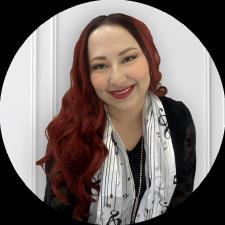
Samantha Z. answered • 02/24/20
Experienced ear training teacher
There are so many ways. It really depends on your personality, learning styles, goals, experiences, etc.
Personally, here's what's helped me a huge amount:
- Learning to think in terms of scale degrees. Melodies aren't just random series of notes; at least in tonal music, each note of the scale has its own function, its own feel, its own relationship with other notes in the scale. So it's been immensely helpful to start hearing/singing the functions of notes. It's also a lot more meaningful than just singing a bunch of random notes.
- Learning to *not* think in terms of intervals, but rather in terms of patterns. Yes, intervals are important. But unless we're dealing with serial / atonal music (which is what the founders of the academic field of music theory were all into, hence the emphasis on intervals in music theory classes), music is not a note followed by a note followed by a note followed by a note. That's like trying to read a book letter by letter by letter by letter by letter. When we read a book, we read entire words and phrases; music is the same way. Music is about patterns. So learning to recognize patterns has been immensely useful to me. I don't have to think "what's this note, ok what's this note, ok what's the next note, and what's the note after that" because I'm thinking of the notes in chunks.
- Learning to think of music in terms of gestures. Think about how the ways we move our arms when we talk, or the ways we move our eyes/nose/mouth when we talk, communicate meaning. Same thing with music. Upwards gestures often indicate hope. Downward gestures often indicate loss. There are cadential gestures, opening gestures, triumphant gestures, transitional gestures, etc. Learning to recognize not only patterns, but the functions and meanings of these patterns, has been very useful to me. Again, it means that rather than trying to connect random dots on the page, I'm reading meaningful patterns and understanding how they connect to each other in meaningful ways.
The other major thing that helped me was really becoming obsessed. Seriously. It got to the point where every time I heard something, my mind was trying to figure out the scale degrees. Every time I heard something, my mind was trying to recognize patterns or discover new ones. It became a part of how I listen to music, how I play music, how I sing, how I compose. Not an academic exercise, but simply part of my fluency in music.
Of course that's all easier said than done. :-)
But enough of me.
What approaches have you already tried out? What have you found to be (or absolutely not be) helpful?








